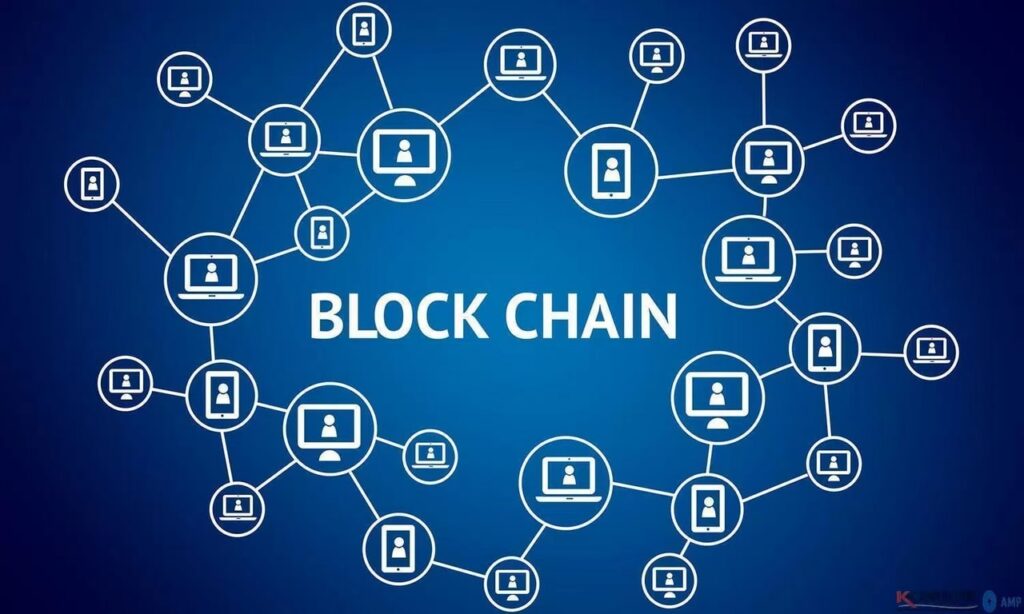In the rapidly evolving digital landscape, data has become the lifeblood of modern society. Large-scale internet service providers like Cox Communication providing Cox Internet Bundles have ensured that affordable internet is available to almost everyone. From financial transactions to personal information, data fuels our daily lives. However, traditional data storage and transfer methods have long been plagued by issues of security, transparency, and trust. Enter blockchain technology, a disruptive force that is reshaping the way we store and transfer data. In this blog, we will explore the transformative power of blockchain and how it is revolutionizing data management in various industries.
Understanding Blockchain Technology
Before diving into its applications, let’s grasp the essence of blockchain development technology. At its core, blockchain is a decentralized, distributed ledger that securely records transactions across multiple computers. Each record, known as a block, contains a timestamp and a cryptographic link to the previous block. This chain of blocks forms an unalterable history, ensuring data immutability and security. Consequently, every participant on the network has access to the same information, fostering transparency and trust.
Enhanced Security and Data Integrity
Data security is a paramount concern in today’s digital age. Traditional centralized databases are vulnerable to cyberattacks and single points of failure. In contrast, blockchain employs advanced encryption techniques and consensus protocols to safeguard data from unauthorized access and tampering. By decentralizing data storage, the system becomes more resilient, thwarting potential breaches.
Moreover, the immutability of blockchain records guarantees data integrity. Once a block is added to the chain, altering it requires modifying subsequent blocks, which is practically impossible due to the distributed nature of the network. This inherent security feature makes blockchain particularly attractive to industries dealing with sensitive information like healthcare and finance.
Facilitating Transparent and Trustworthy Systems
Trust is the foundation of any transaction, whether in business, government, or personal interactions. Blockchain’s transparent nature enables all network participants to access the same data simultaneously, eliminating the need for intermediaries and promoting trust among parties. Smart contracts, self-executing codes triggered by predefined conditions, further enhance transparency and automate processes without relying on a third party.
In supply chain management, blockchain technology empowers consumers to trace products’ origin, ensuring fair trade and ethical practices. Similarly, in voting systems, blockchain ensures transparent and tamper-proof elections, bolstering democracy.
The Role of Blockchain in Data Privacy
Data privacy has emerged as a critical concern in recent years. With large corporations amassing vast amounts of personal information, individuals’ privacy often remains vulnerable. Blockchain offers a potential solution through its decentralized architecture and cryptographic measures. Users can maintain control over their data, granting access only to authorized parties through private keys. This approach shifts the balance of power back to the data owners, safeguarding their privacy rights.
Pioneering Innovations in Financial Services
The financial sector has been quick to embrace blockchain technology. Cryptocurrencies, such as Bitcoin and Ethereum, have disrupted the traditional banking system by providing secure, borderless, and near-instantaneous transactions. Blockchain-based smart contracts enable automated financial agreements, simplifying processes like insurance claims and loan approvals.
Moreover, blockchain’s decentralized nature minimizes transaction costs and eliminates the need for intermediaries, making financial services more accessible to unbanked populations.
Blockchain in Healthcare
Blockchain technology in healthcare is revolutionizing the industry by enhancing data security, interoperability, and patient-centric care. By creating a decentralized and immutable ledger, blockchain ensures transparency and trust in medical records, reducing the risk of data breaches and fraud.
Smart contracts enable automated and error-free processes, streamlining insurance claims and payment systems. Patients gain greater control over their health data, granting permission for specific providers to access information. Interoperability between disparate systems is facilitated through blockchain’s standardized data exchange protocols. Despite challenges such as scalability and regulatory hurdles, blockchain’s potential to transform healthcare fosters hope for a more efficient, patient-centered, and secure future.
Overcoming Challenges
Despite its vast potential, blockchain technology faces challenges, such as scalability and energy consumption. One major challenge is scalability. As blockchain networks expand, they face bottlenecks in processing transactions, leading to slow confirmation times and high fees. Scalability solutions are increasingly being explored to overcome this obstacle.
Another hurdle is regulatory uncertainty. Governments worldwide are grappling with how to classify and regulate blockchain-based assets and applications. Clear and favorable regulations are necessary to foster innovation and investment in the blockchain industry.
Moreover, blockchain must address issues of interoperability and energy consumption. Cross-chain communication protocols and advancements in consensus algorithms can promote interoperability, while the shift towards greener blockchain solutions can mitigate environmental concerns.
Conclusion
In conclusion, as we navigate the ever-evolving digital landscape, blockchain technology stands as a formidable force reshaping the way we manage and secure our data. Its decentralized architecture, cryptographic safeguards, and transparent ledger system have not only bolstered data security but also redefined trust in various industries. From the financial sector’s adoption of cryptocurrencies to the healthcare industry’s pursuit of patient-centric care, blockchain has showcased its transformative potential. However, it is essential to acknowledge the challenges of scalability, regulatory uncertainty, and energy consumption that blockchain faces on its path to widespread adoption. As we look ahead, envisioning a more secure and efficient future for data management, we must also recognize the role of service providers like Charter Spectrum in enabling seamless connectivity and accessibility for individuals and organizations. Whether it’s exploring blockchain innovations or simply paying bills online, the digital landscape continues to evolve, promising a future where data remains both the lifeblood and the safeguard of modern society. So, as we harness the power of blockchain, let us not forget the convenience and accessibility offered by providers like Charter Spectrum, making the experience of managing digital affairs, such as Charter Spectrum pay bill, a seamless part of our connected lives.

